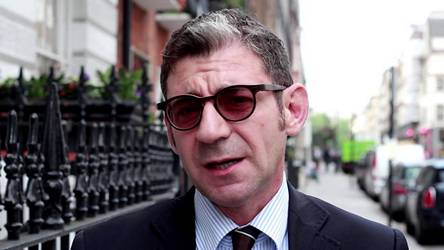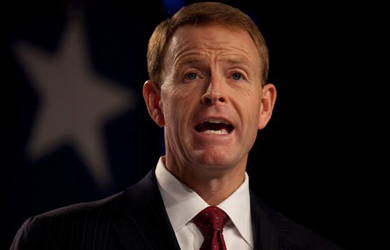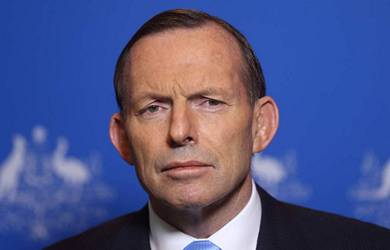Alliance Defending Freedom, formerly the Alliance Defense Fund, has been working with Focus on the Family to put together an “anti-bullying yardstick” that provides quite weak and watered-down measures to fight bullying. But backing ineffective measures to combat bullying may be the point, as the Religious Right has fiercely opposed comprehensive anti-bullying policies because of protections that would help curb anti-LGBT bullying, even to the point of supporting loopholes for bullies. Ironically, just today the Gay, Lesbian, and Straight Education Network (GLSEN) released a report detailing the disproportionately high rates of bullying faced by LGBT youth, and how such bullying is less likely to materialize in schools with stronger anti-bullying policies.
ADF attorney Matt Sharp appeared on The Janet Mefferd Show yesterday to denounce “oppressive” anti-bullying policies, and while Sharp insisted that the campaign is not linked to either the ADF or Focus’s anti-LGBT advocacy, it probably didn’t help that he was speaking to a talk show host who has consistently denounced LGBT rights and people. Just before Sharp appeared on her program, Mefferd criticized the Democratic Party for backing marriage equality by asking, “where’s the lightning?”
Sharp said that gay rights groups are using bullying as “an avenue for them to insert their homosexual agenda into the schools” and promote “the re-education of students.” He claimed ADF and Focus will provide an alternative to “the propaganda of homosexual activist groups that seek to promote their agenda in the schools,” describing their “propaganda” as books that dare to recognize the reality that some children are raised by same-sex couples!
Sharp: It’s important for schools to have proper respect for the First Amendment rights of students to express their views on religion, politics and other subjects without fear of being labeled as bullies or being punished by an oppressive anti-bullying policy that violates their rights.
Mefferd: Definitely, so we’ve seen a lot of these activist organizations getting involved in the schools, GLSEN is one that comes to mind because they’re been so big and have been so active, talk a little bit about what they have done in the way of anti-bullying policies?
Sharp: Yeah, we’ve seen several instances where they will come into schools and place pressure upon schools to adopt their model policies that are really just an avenue for them to insert their homosexual agenda into the schools. We actually saw a situation not too long ago up in Iowa where the group was promoting the re-education of students and tolerance training and all of this stuff that was meant to normalize same-sex marriage in these books they were giving to young elementary students portraying a family with two daddies and two mommies and things like that. The school district really didn’t know how to respond so it was important for us to get involved with them and help them to know that you don’t have to cave into these groups, there’s alternatives, that’s why we’re really excited about teaming up with Focus on this to provide an alternative to schools, to help them know what a proper anti-bullying policy that protects all students equally looks like without having to accept the propaganda of homosexual activist groups that seek to promote their agenda in the schools.
Sharp later asserted that groups like GLSEN “focus upon specific characteristics and elevate those to say ‘bullying against this is really bad and we don’t want that in school but other types of bullying may be tolerable.’” Actually, that is exactly what the ADF is doing by supporting religious exemptions for bullying. He even speak about bullying as almost only dealing with physical harm, which again ignores the serious harm posed by verbal abuse, cyber-bullying and harassment.
His argument is that enumeration, the policy of mentioning certain distinguishable characteristics tied to bullying to help combat bullying not only after it occurs but also to prevent it from happening in the first place, somehow doesn’t protect all students. For example, research shows that students with mental and physical disabilities are more likely to face bullying, and therefore enumerated anti-bullying policies frequently list ability as a highlighted characteristic. Similarly, studies demonstrate that LGBT and LGBT-perceived youth have a higher likelihood of being bullied.
Policies that mention sexual orientation and gender identity, along with ability, race, class, sex, national origin and religion, as characteristics that are linked to bullying help strengthen anti-bullying programs and don’t leave anyone out, as Sharp implies.
But ADF and Focus don’t really have a problem with enumeration, they just have a problem with anti-bullying plans that may be used to protect LGBT students. If ADF or Focus simply took a principled stand against enumeration in anti-bullying policies, then why haven’t these groups denounced them before they began including characteristics like sexual orientation and gender identity?
Indeed, putting an added emphasis on factors that are commonly connected to bullying does not make any student less protected—or as Sharp baselessly argues, allow for other cases of bullying—but help reduce bullying and create a safer climate for all students.








